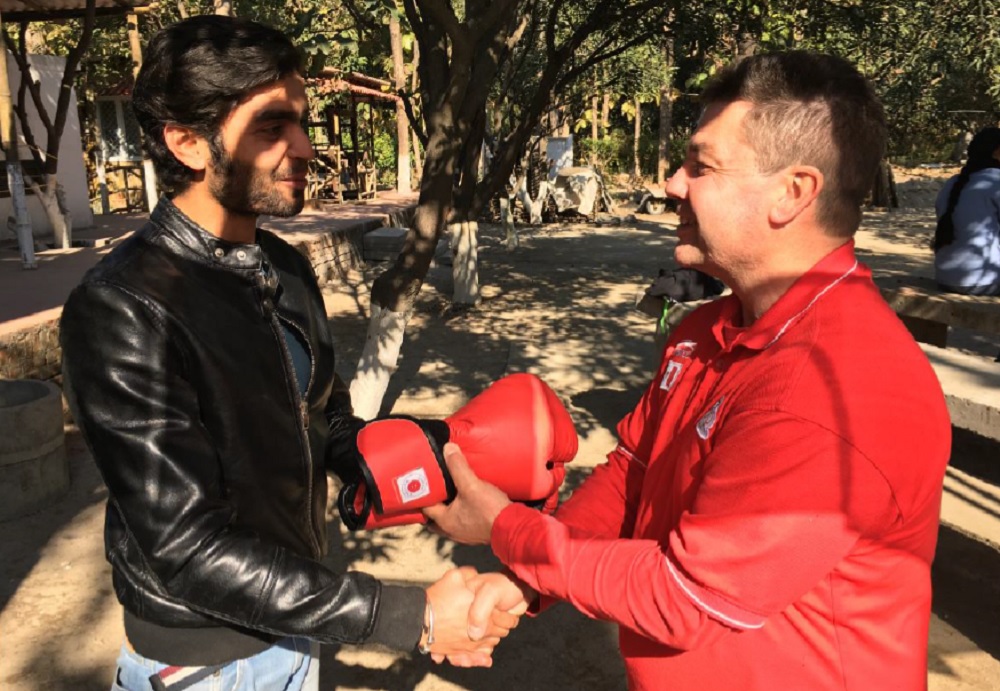Antony Perry
24 March 2017: It’s boxing – but not as you know it.
University of Canberra PhD candidate Paul Perkins is the driving force behind a modified version of the contact sport that’s taking parts of India by storm.
Mr Perkins, formerly a Boxing Australia national coach, recently spent seven weeks in Uttarakhand, a state in the country’s north, training instructors and establishing programs in schools and a rehabilitation clinic.
Coined ModBox, the low-impact activity is designed to develop skill, speed and fitness. It also promotes social inclusion and development over competitiveness.
“ModBox is a sport-for-development initiative that uses a modified, low-risk form of boxing as a vehicle to assist with personal growth and development,” Mr Perkins said.
“We’re using it to reach people from various backgrounds and to encourage community engagement.”
ModBox was developed over a five-year period, during which extensive research and collaboration with would-be participants was undertaken to continually refine the concept. It’s an extension of Box Tag, another no-risk variation of boxing developed by Allan Hahn and a team of researchers from the University’s Research Institute for Sport and Exercise.
The rules are simple: athletes should have fun, no contact with the head or neck, and participants are encouraged to perform with high levels of passion and enthusiasm.
Specialised impact-absorbing gloves designed by University of Canberra alumnus and local industrial designer Geordie Ferguson are worn by participants to lessen the impact of punches.
Mr Perkins said he hoped ModBox would change the perception that boxing is an exclusive, competitive and predominantly male sport.
“It’s possible for people from all age groups to take part in it, but we’re focusing on underprivileged youngsters and females,” he said.
“Every contest is completely self-officiated, meaning participants rate their own performance as well as each other’s. There is absolutely no emphasis on winning.”
The initiative, believed to be a world first, is being funded by the Department of Foreign Affairs and Trade, Boxing Australia, the University of Canberra, VTara Energy Group and various other stakeholders.
Mr Perkins said he was overwhelmed by how well the program had been received in India.
“We had a goal of training 10 coaches over there, but we ended up getting 34,” he said.
“By the time I left, the program was running in three schools and a rehabilitation clinic, and there was plenty of interest from other institutions.”
Mr Perkins plans to return to India later this year to continue growing the program.



